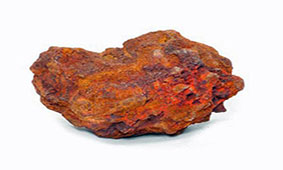
Iron ore futures down

Prices are being affected by a pick-up in supply aided by Vale’s (NYSE:VALE) incessant efforts to restore capacity after the Brumardinho dam burst in January. U.S. President Donald Trump’s trade war with China, fueled by a recent proposal to slap an additional 10% tariff on $300 billion in Chinese imports from September 1, is also taking a toll on the value of iron ore as mills’ demand is starting to cool off.
However, futures are the hardest hit by the current state of affairs. According to Bloomberg, futures in Singapore fell as much as 8.6% to $94.32 a tonne, with ore for September closing around 7.3% lower at $95.63 a tonne. Benchmark spot material dropped to $99.50 a tonne on Monday.
Also, last week, the most-traded iron ore on the Dalian Commodity Exchange, with January 2020 expiry, slumped 4.2% to 724.50 yuan, or $102.76 a tonne, the sharpest one-day fall since July 5.
“Miners’ shares retreated, with markets focused on the consequences of China allowing the yuan to weaken to the lowest in more than a decade,” Bloomberg’s analysis reads. The Chinese currency sunk beyond 7 per dollar for the first time since 2008.
Experts quoted by the media outlet say that the situation with the yuan paired with uncertainty around the Washington-Beijing trade relations spurs concerns about economic growth and has had an impact on investors’ interest in raw materials.
Fortescue (ASX:FMG) shares fell by 7.2% in Sydney, while Vale’s slumped as much as 5.5% in Sao Paulo.
Manufacturing has also started to slow down, with key markets such as Germany dropping its crude steel output by 5.8% y-o-y, Turkey by 11% y-o-y, France by 3.4% y-o-y, and Brazil’s by 3.1%.



Trump weighs using $2 billion in CHIPS Act funding for critical minerals

Codelco cuts 2025 copper forecast after El Teniente mine collapse

Electra converts debt, launches $30M raise to jumpstart stalled cobalt refinery

Barrick’s Reko Diq in line for $410M ADB backing

Abcourt readies Sleeping Giant mill to pour first gold since 2014

Nevada army depot to serve as base for first US strategic minerals stockpile

SQM boosts lithium supply plans as prices flick higher

Viridis unveils 200Mt initial reserve for Brazil rare earth project

Tailings could meet much of US critical mineral demand – study

Kyrgyzstan kicks off underground gold mining at Kumtor

Kyrgyzstan kicks off underground gold mining at Kumtor

KoBold Metals granted lithium exploration rights in Congo

Freeport Indonesia to wrap up Gresik plant repairs by early September

Energy Fuels soars on Vulcan Elements partnership

Northern Dynasty sticks to proposal in battle to lift Pebble mine veto

Giustra-backed mining firm teams up with informal miners in Colombia

Critical Metals signs agreement to supply rare earth to US government-funded facility

China extends rare earth controls to imported material

Galan Lithium proceeds with $13M financing for Argentina project

Kyrgyzstan kicks off underground gold mining at Kumtor

Freeport Indonesia to wrap up Gresik plant repairs by early September

Energy Fuels soars on Vulcan Elements partnership

Northern Dynasty sticks to proposal in battle to lift Pebble mine veto

Giustra-backed mining firm teams up with informal miners in Colombia

Critical Metals signs agreement to supply rare earth to US government-funded facility

China extends rare earth controls to imported material

Galan Lithium proceeds with $13M financing for Argentina project

Silver price touches $39 as market weighs rate cut outlook

















